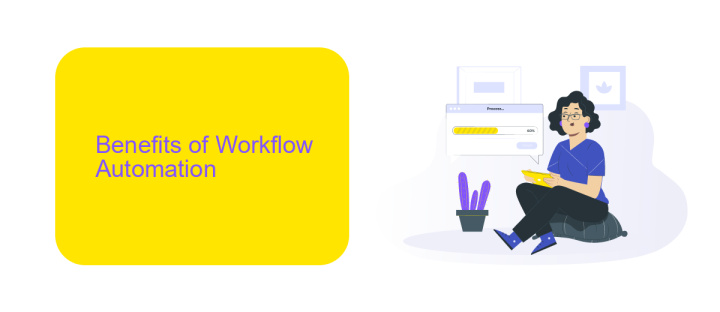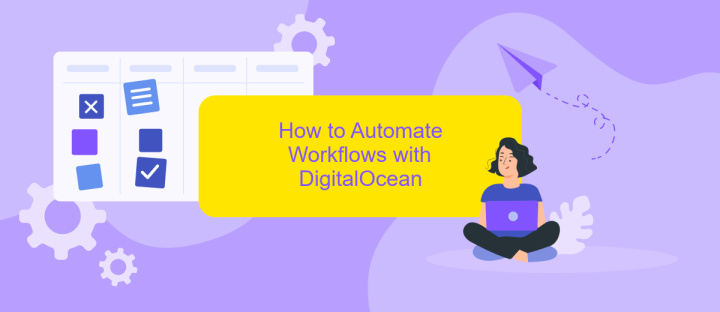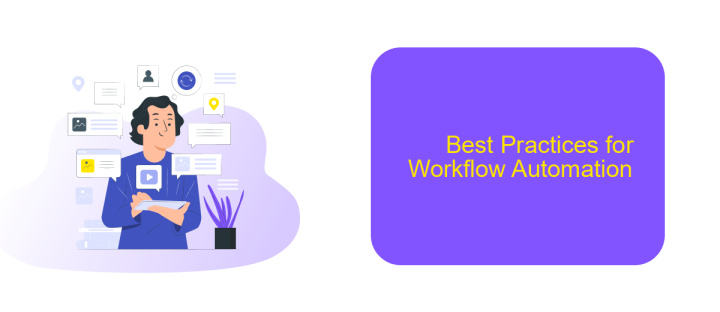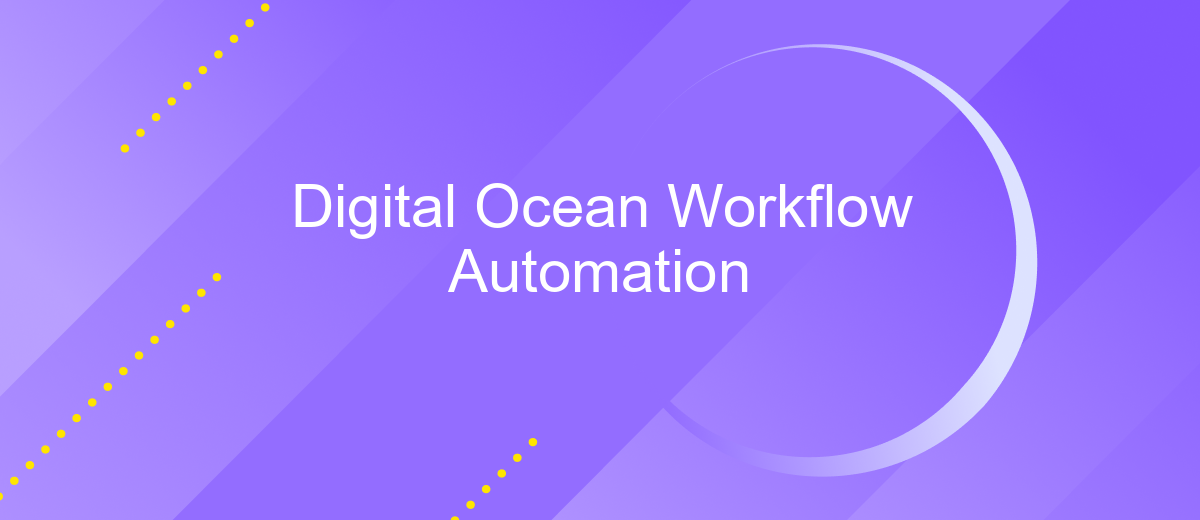Digital Ocean Workflow Automation
In today's fast-paced digital landscape, efficiency and automation are key to staying ahead. Digital Ocean Workflow Automation offers a streamlined solution for managing and optimizing your cloud infrastructure. By automating repetitive tasks, it frees up valuable time, reduces human error, and enhances productivity. Discover how this powerful tool can transform your workflow and drive your business forward.
Introduction
In today's fast-paced digital landscape, automating workflows has become essential for businesses to maintain efficiency and competitiveness. Digital Ocean offers a robust platform for developers and IT professionals to deploy, manage, and scale applications effortlessly. By integrating workflow automation, organizations can streamline repetitive tasks, reduce human error, and improve overall productivity.
- Automate routine server management tasks
- Seamlessly integrate with third-party applications
- Monitor and scale resources dynamically
- Enhance collaboration among development teams
One effective way to set up these integrations is through services like ApiX-Drive, which allows for easy and efficient connectivity between various applications and Digital Ocean. By leveraging such tools, businesses can create a cohesive and automated environment that ensures all systems work harmoniously, enabling teams to focus on more strategic initiatives. This introduction explores the benefits and methods of implementing workflow automation using Digital Ocean and complementary services.
Benefits of Workflow Automation

Workflow automation in Digital Ocean offers numerous benefits, significantly enhancing productivity and efficiency. By automating repetitive tasks, teams can focus on more strategic activities, reducing the risk of human error and ensuring consistent outcomes. This leads to faster project completion times and improved overall performance. Additionally, automation can provide real-time monitoring and alerts, enabling quicker responses to potential issues and minimizing downtime.
Integrating various services through tools like ApiX-Drive can further streamline operations. ApiX-Drive allows seamless connections between different applications, simplifying data transfer and synchronization. This not only saves time but also ensures data accuracy across platforms. By leveraging such integrations, businesses can create a more cohesive and efficient workflow, ultimately driving better results and fostering innovation. Embracing workflow automation and integration tools is essential for staying competitive in today's fast-paced digital landscape.
How to Automate Workflows with DigitalOcean

Automating workflows with DigitalOcean can significantly enhance efficiency and reduce manual tasks. By leveraging DigitalOcean’s robust infrastructure, you can streamline your processes and focus on more critical aspects of your business.
- Set Up Your Droplets: Start by creating and configuring your DigitalOcean droplets to serve as the backbone of your automated workflow.
- Use API Integration: Utilize DigitalOcean’s API to automate routine tasks such as scaling resources, managing DNS, and deploying applications.
- Implement CI/CD Pipelines: Integrate Continuous Integration and Continuous Deployment (CI/CD) pipelines to automate code testing and deployment, ensuring smooth and consistent updates.
- Leverage Third-Party Tools: Utilize tools like ApiX-Drive to facilitate seamless integration between DigitalOcean and other services, enabling a more cohesive workflow.
- Monitor and Optimize: Continuously monitor your automated workflows and optimize them for performance and cost-efficiency using DigitalOcean’s monitoring tools.
By following these steps, you can create a more efficient and automated workflow on DigitalOcean. The integration of third-party tools like ApiX-Drive further enhances your capability to connect various services, making your workflow more versatile and robust.
Best Practices for Workflow Automation

Effective workflow automation can significantly enhance productivity and reduce manual errors. To achieve the best results, it is essential to follow certain best practices that ensure smooth and efficient operations.
First, clearly define your goals and objectives. Understand what tasks you want to automate and the outcomes you expect. This helps in selecting the right tools and setting up appropriate workflows that align with your business needs.
- Use reliable automation tools like ApiX-Drive to integrate various applications and services seamlessly.
- Regularly monitor and analyze your workflows to identify bottlenecks and areas for improvement.
- Ensure proper documentation of your automation processes to facilitate troubleshooting and future updates.
- Train your team on the new automated workflows to ensure they can effectively utilize the system.
Lastly, always keep scalability in mind. As your business grows, your automation needs may evolve. Choose flexible solutions that can adapt to changing requirements and support future expansions. By following these best practices, you can optimize your workflow automation and achieve greater efficiency.


Conclusion
In conclusion, Digital Ocean Workflow Automation provides a robust platform for streamlining and optimizing your development processes. By leveraging its powerful tools and integrations, teams can achieve greater efficiency, reduce manual tasks, and ensure seamless deployment cycles. The ability to automate repetitive tasks not only saves time but also minimizes the risk of human error, leading to more reliable and consistent outcomes.
Furthermore, integrating services like ApiX-Drive can significantly enhance your workflow automation. ApiX-Drive offers a user-friendly interface for connecting various applications and automating data transfers, making it easier to manage complex workflows without extensive coding knowledge. This synergy between Digital Ocean and ApiX-Drive enables developers to focus more on innovation and less on operational overhead, ultimately driving productivity and growth. Embracing these automation tools is a strategic move towards a more agile and efficient development environment.
FAQ
What is Digital Ocean Workflow Automation?
How can I automate deployments on Digital Ocean?
Can I integrate third-party services with Digital Ocean for automation?
What are some common use cases for workflow automation on Digital Ocean?
Is it possible to set up automated backups for my Digital Ocean droplets?
Time is the most valuable resource in today's business realities. By eliminating the routine from work processes, you will get more opportunities to implement the most daring plans and ideas. Choose – you can continue to waste time, money and nerves on inefficient solutions, or you can use ApiX-Drive, automating work processes and achieving results with minimal investment of money, effort and human resources.

